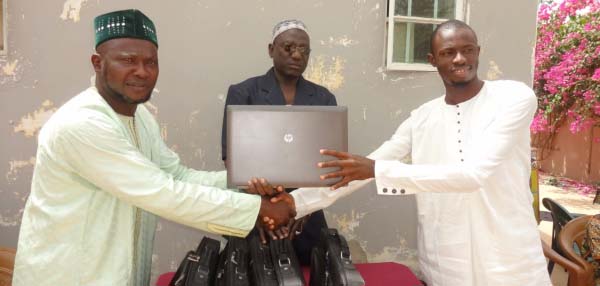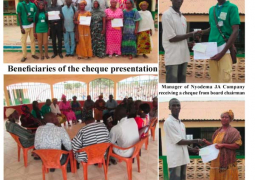
Foundation Humanitarian Aid Gambia (FHAG) on Sunday presented more than 140 laptops to 12 senior secondary schools across The Gambia.
The foundation-sponsored students at the University of The Gambia, and some individuals also received laptops.
According to the distribution plan, two schools in each region of The Gambia will receive 8 laptops; meaning a total of 96 laptops for 12 senior secondary school.
The presentation of the computers was attended by school heads and was held at FHAG office in Brusubi.
In his welcome remarks, Alagie Sunkary Badjie, master of ceremony, said FHAG is an NGO operating in The Gambia since 1996 and it is engaged in various development initiatives in agriculture, health and education.
He said the donated laptops were given to FHAG by a partner in Holland called Noorder Port College.
Mr Badjie explained that upon receipt of the laptops, the board of FHAG in consultation with the Ministry of Education and a dean of the UTG decided as to how the computers should be distributed.
Ousman Ceesay, board member of FHAG, said the board deemed it wise to distribute the laptops among schools and students.
He advised the recipients to make best use of the machines.
Deputy board chairperson of FHAG, Momodou S. Kamara, said the presentation of the laptops symbolised the steadfastness and commitment of FHAG towards supporting education in The Gambia in line with the vision of the Ministry of Basic and Secondary Education.
He said since the establishment of the organisation, it has supported and implemented various projects in collaboration with relevant stakeholders in both rural and urban areas.
Mr Kamara explained that most of FHAG projects are successfully implemented thanks to the support of partners in Holland and Belgium.
He said their partners continued to strive to generate financial resources through well-coordinated fundraising activities.
The board member further explained that the rationale behind the distribution of the laptops to schools is to further create an enabling environment for students, especially those in the rural communities, to have access to ICT.
Read Other Articles In Article (Archive)



